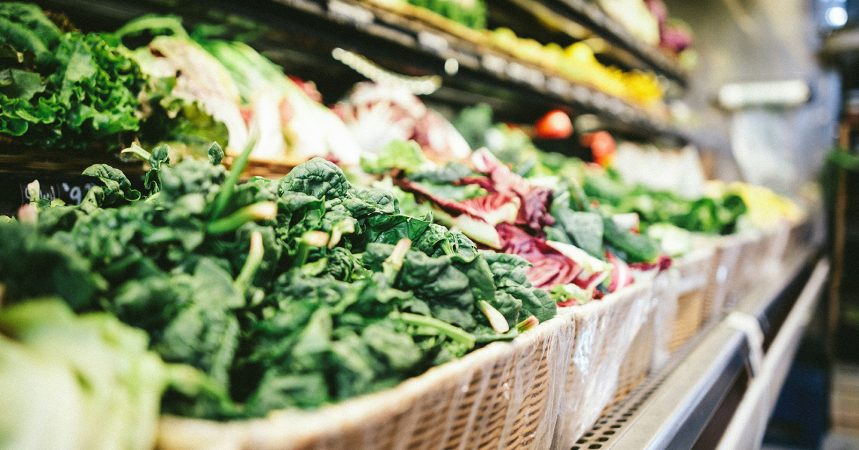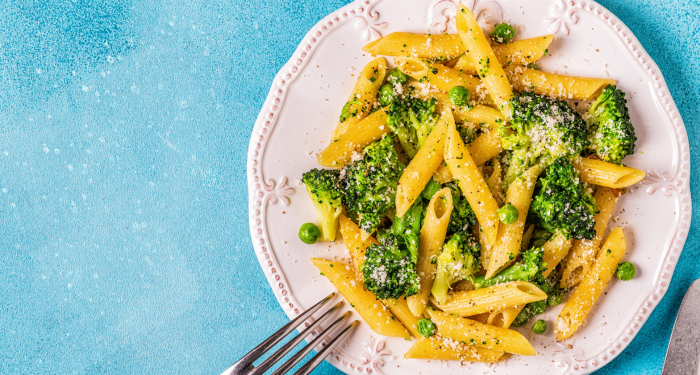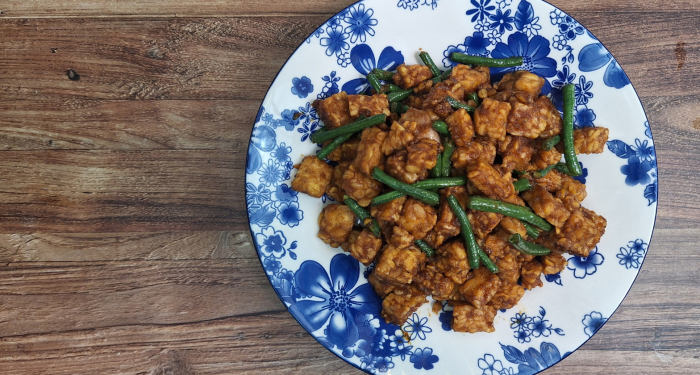We’re talking all about what to eat and when to supplement!
New to veganism? Welcome to the club! While living a cruelty-free lifestyle comes with plenty to celebrate, we’d be remiss if we didn’t dig into nutrient adequacy on a plant-based diet. As you know, vegan diets are completely free from meat, poultry, seafood, dairy, eggs, honey, and other animal byproducts. Non-vegans rely on these animal ingredients for nutrients, but that doesn’t mean there aren’t cruelty-free ways to meet your nutritional needs. Let us explain!
According to nutrition experts, appropriately planned vegan diets can be nutritionally adequate and health-promoting. But what does “appropriately planned” even mean? Well, it comes down to intentionally arranging your meals to include a variety of nutrient-dense foods containing important macro- and micronutrients. In addition, appropriately planned vegan diets may involve fortified foods and dietary supplements (such as Nu Pursuit’s plant-based essentials multivitamin) when necessary. Whether you’re a plant-based newbie or just searching for a dietary tune-up, we’ve got you covered.
How to Meet Your Nutrient Needs on a Plant-Based Diet:
1. Build a balanced plate
Ensuring that your diet is rich in nutrients starts by eating from all of the food groups. You likely were encouraged to eat your fruits and vegetables growing up, and we could not agree more. Opting for a good mix of fruits, vegetables, whole grains, and plant-based proteins at most meals and snacks naturally allows us to consume a mix of carbohydrates, protein, and fat. Consider this back-to-basics approach to be your dietary framework. But the effort doesn’t stop there.
Rather than choosing apples and chickpeas on repeat, branch out for the ultimate nutrient diversity. So this might mean meals containing apples and chickpeas one day, avocado and lentils the next, and berries and bean burgers to follow. We could keep going, but we’re sure you’ve got your own food combination go-tos.
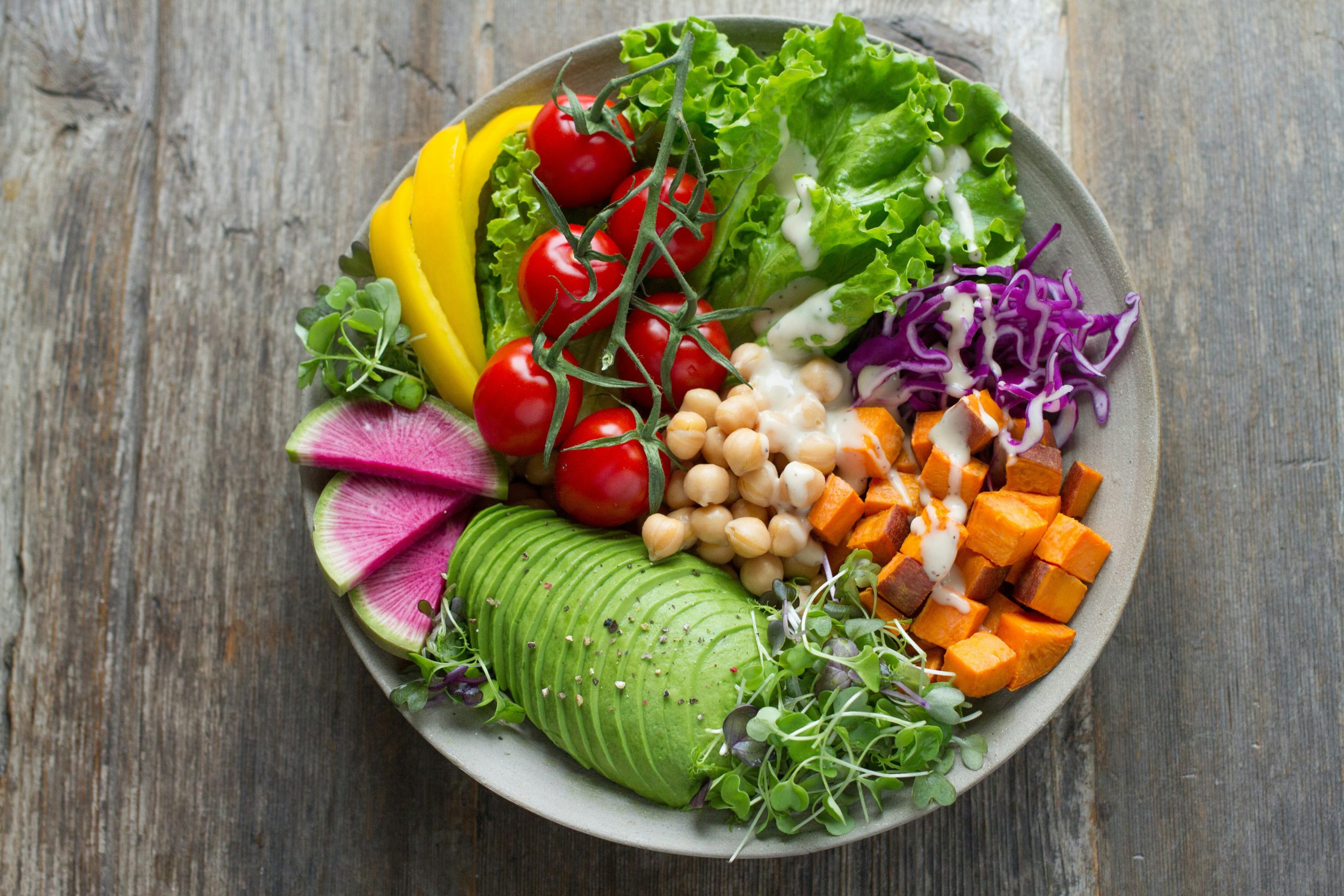
Courtesy of Unsplash/Anna Pelzer
2. Eat the rainbow
Save yourself from a food rut while maximizing your plant-based diet by choosing a variety of different foods each day. All foods, even those in the same food group, contain different nutrients like vitamins, minerals, and antioxidants. Focusing on different colors can also be a good way to ensure nutrient variety. You’ve probably heard about eating the rainbow and we stand behind that approach.
While all nutrients are important, the specific nutrients of focus when following a plant-based eating pattern include calcium, choline, iodine, iron, vitamin B12, vitamin D, and Omega-3 fatty acids. Luckily, these nutrients can be found in a variety of whole and fortified plant-based foods (identified below) and dietary supplements—you knew that was coming.
| Nutrient | Vegan Food Source |
| Calcium | Fortified non-dairy milk alternatives, dark leafy green vegetables, calcium-set tofu, and calcium-fortified orange juice |
| Choline | Nuts, legumes, soy foods, cereal, and wheat germ |
| Iodine | Iodized salt and seaweed |
| Iron | Legumes, fortified grains, soy foods, dark leafy green vegetables, dried fruits, and cooking in cast iron |
| Vitamin B12 | Fortified yeast products (e.g., nutritional yeast and Vegemite) and vegan meat alternatives |
| Vitamin D | Fortified non-dairy milk alternatives and mushrooms exposed to sunlight |
3. Add fortified foods to the mix
Maybe you adopted a plant-based eating pattern with health at the forefront—and that’s amazing! While whole, plant-based foods are some of the healthiest choices around, there is a time and a place for processed foods, especially fortified processed foods such as iron-rich breakfast cereals, calcium-set tofu, fortified orange juice, and nutritional yeast (aka nooch). Not only are these vegan staples delicious and convenient additions to your diet, but they are also packed with the nutrients you need on a plant-based diet.
4. Supplement to support your diet
And speaking of nutrients, let us not forget about dietary supplements! It’s in the name, but these products can supplement where our diets may leave off. While with very careful attention, vegans can technically meet their nutritional needs from diet alone, certain nutrients including vitamins B12 and D, can pose a challenge—and these nutrient deficiencies aren’t ones to play with.
To prevent deficiencies, you can consider single-nutrient supplements or a multi-nutrient supplement to ensure your individual needs are met. Opting for a supplement is not a failure—in fact, it can be an easy and reliable way to ensure your body is getting what it needs to keep itself healthy. And there are many supplements designed specifically for vegans to consider—no need to sacrifice here.
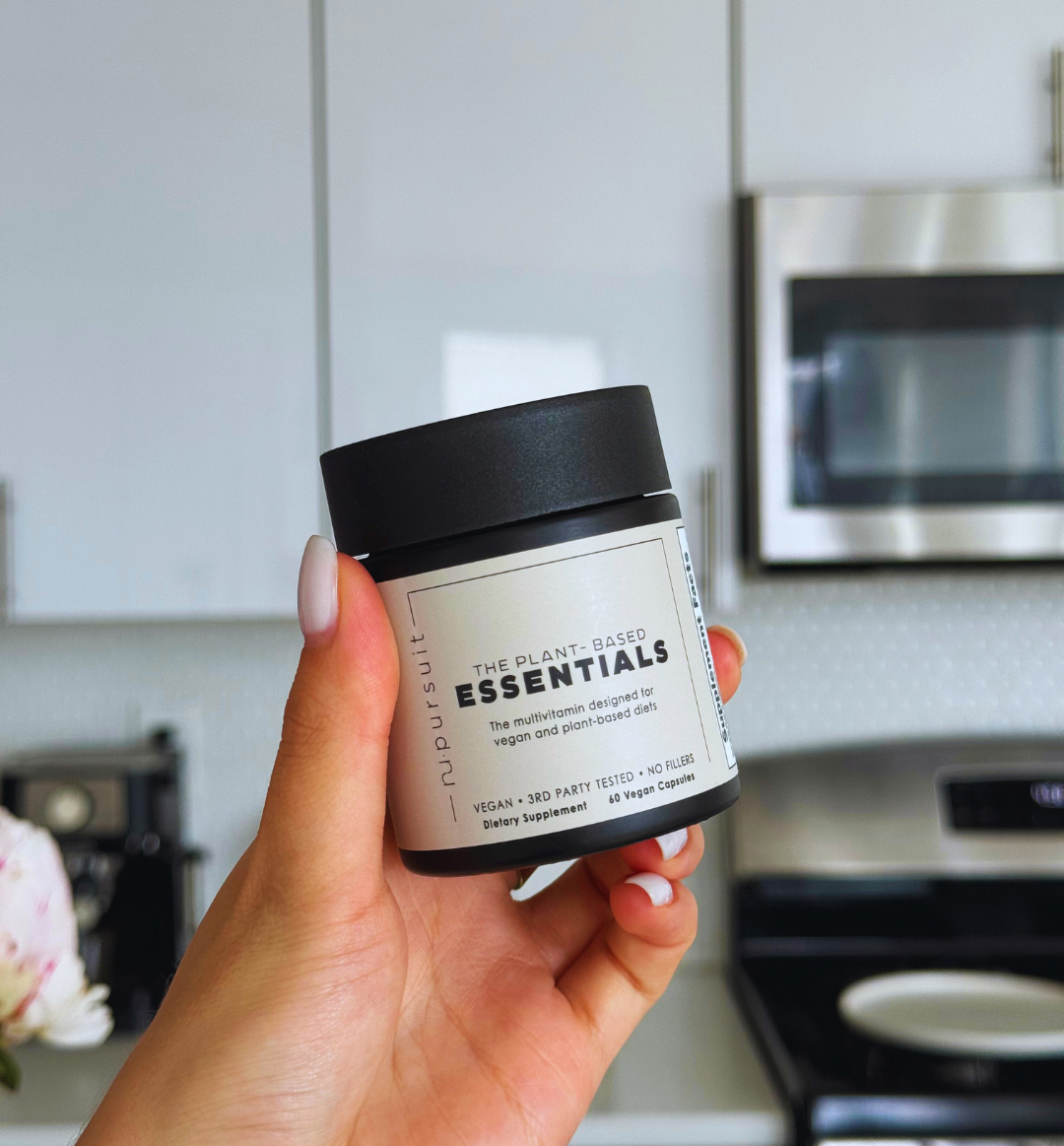
Courtesy of Nu Pursuit
Nu Pursuit: A One-and-Done Vegan Supplement
If you’re thinking about trying a fully vegan supplement designed for your unique plant-based diet, give The Plant-Based Essentials from Nu Pursuit a try! This once-daily multivitamin contains vitamin D, riboflavin (aka vitamin B2), vitamin B12, iron, iodine, zinc, selenium, copper, omega-3 fatty acids, N-acetyl cysteine (antioxidant), and vitamin K2 derived from high-quality, vegan ingredients. Plus, this vegan multivitamin is third-party tested, rooted in science, and free from fillers—what more could you ask for?
So, if you’re interested in adding a supplement to your appropriately planned, health-promoting, and balanced plant-based diet, be sure to check out Nu Pursuit at NuPursuit.com and on Instagram. Plus, use promo code VEGOUT15 for 15% off your purchase (not valid on subscriptions)!
If You Were a Healing Herb, Which Would You Be?
Each herb holds a unique kind of magic — soothing, awakening, grounding, or clarifying.
This 9-question quiz reveals the healing plant that mirrors your energy right now and what it says about your natural rhythm.
✨ Instant results. Deeply insightful.

